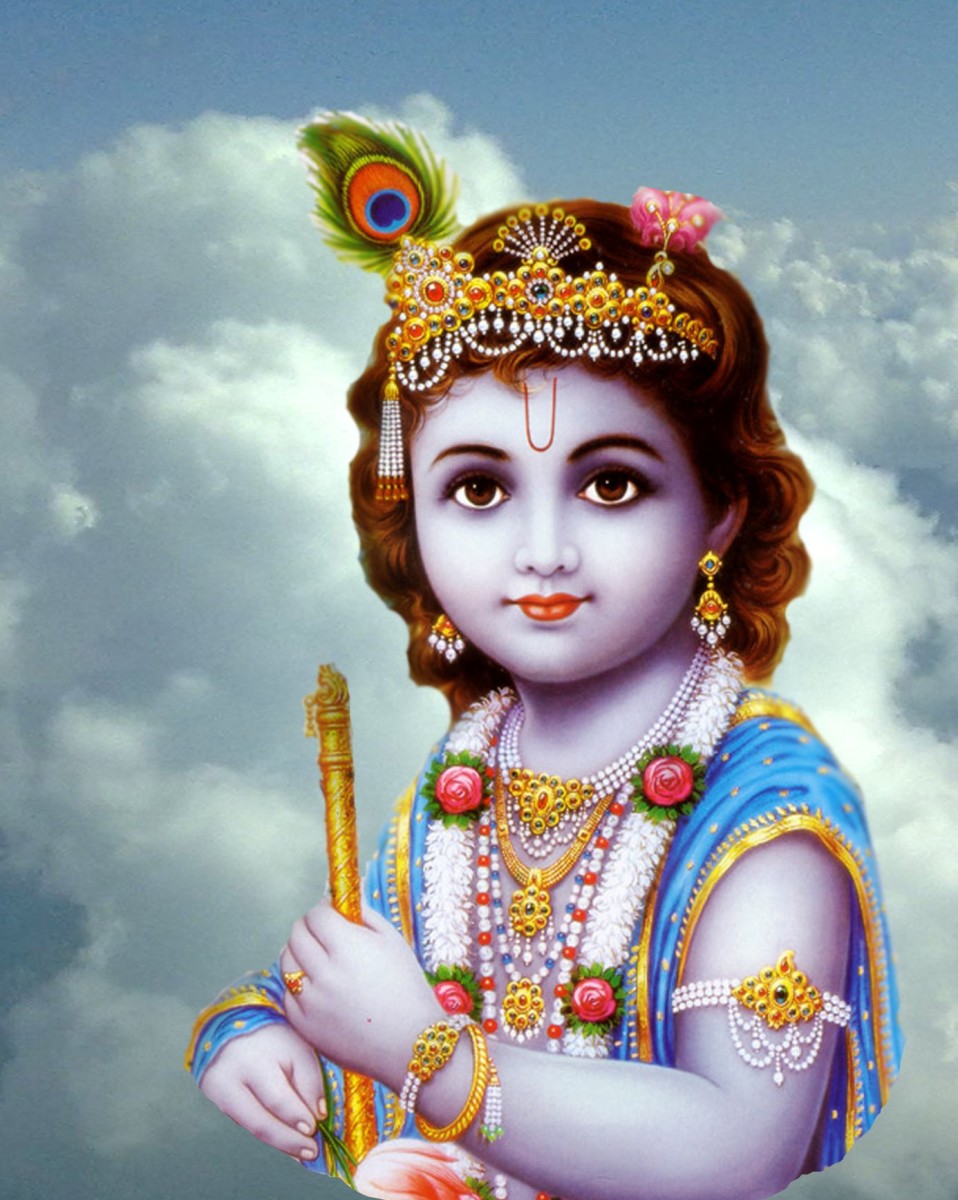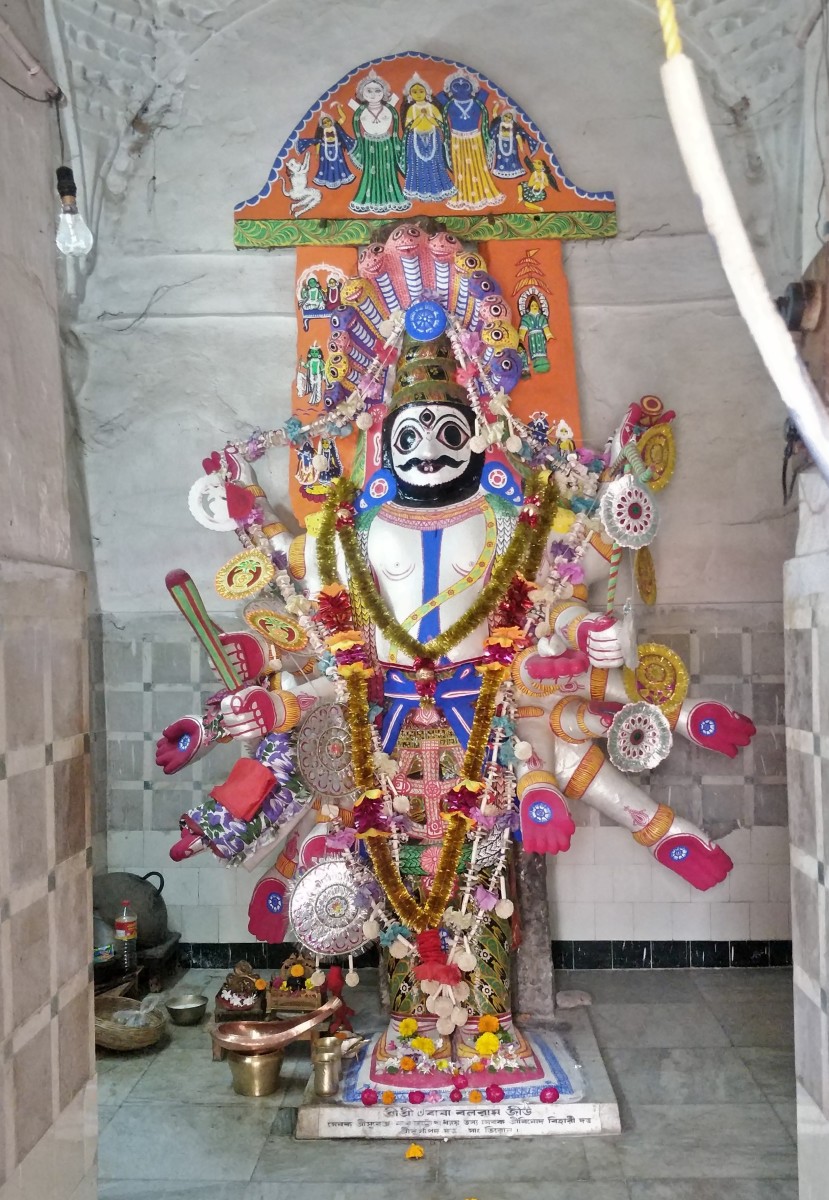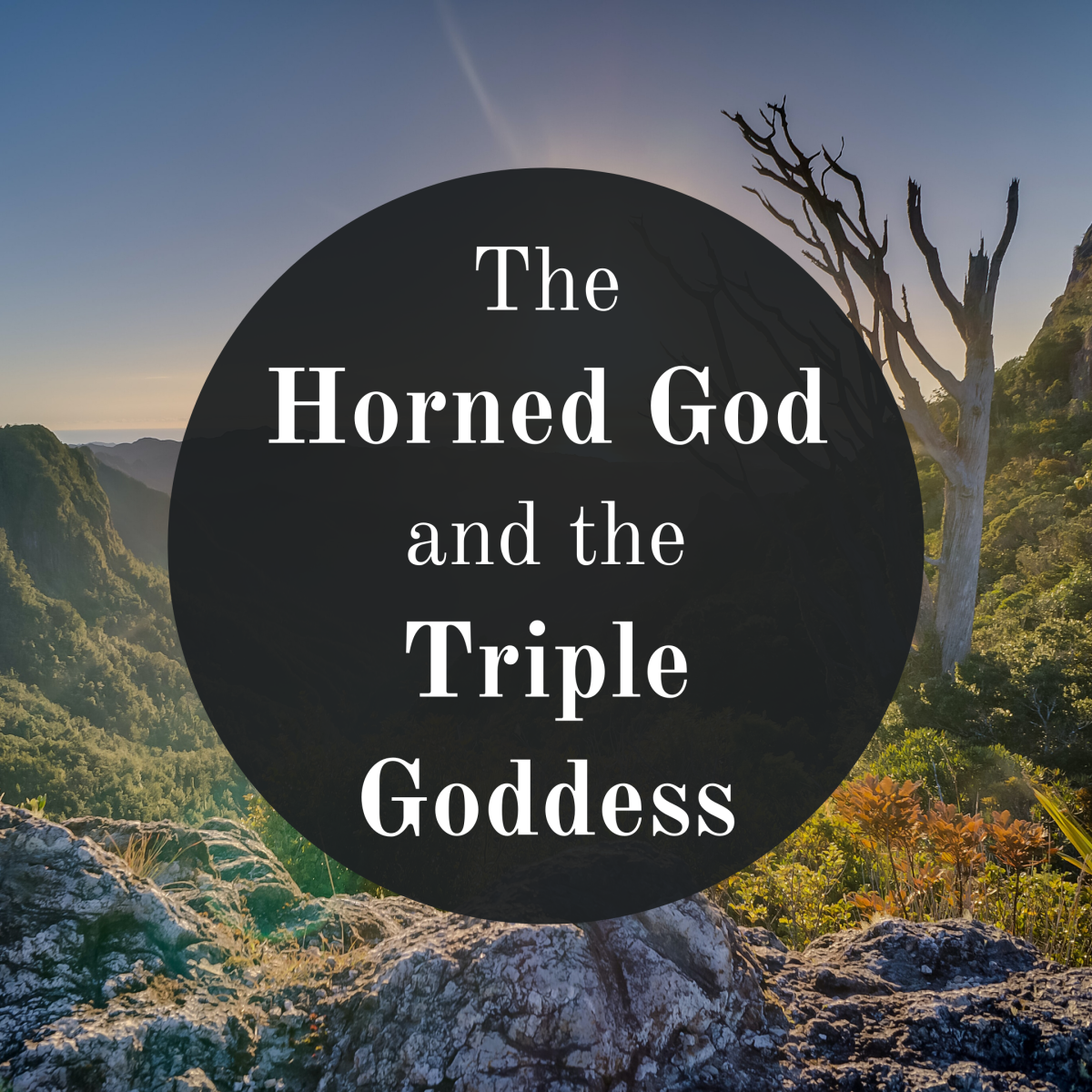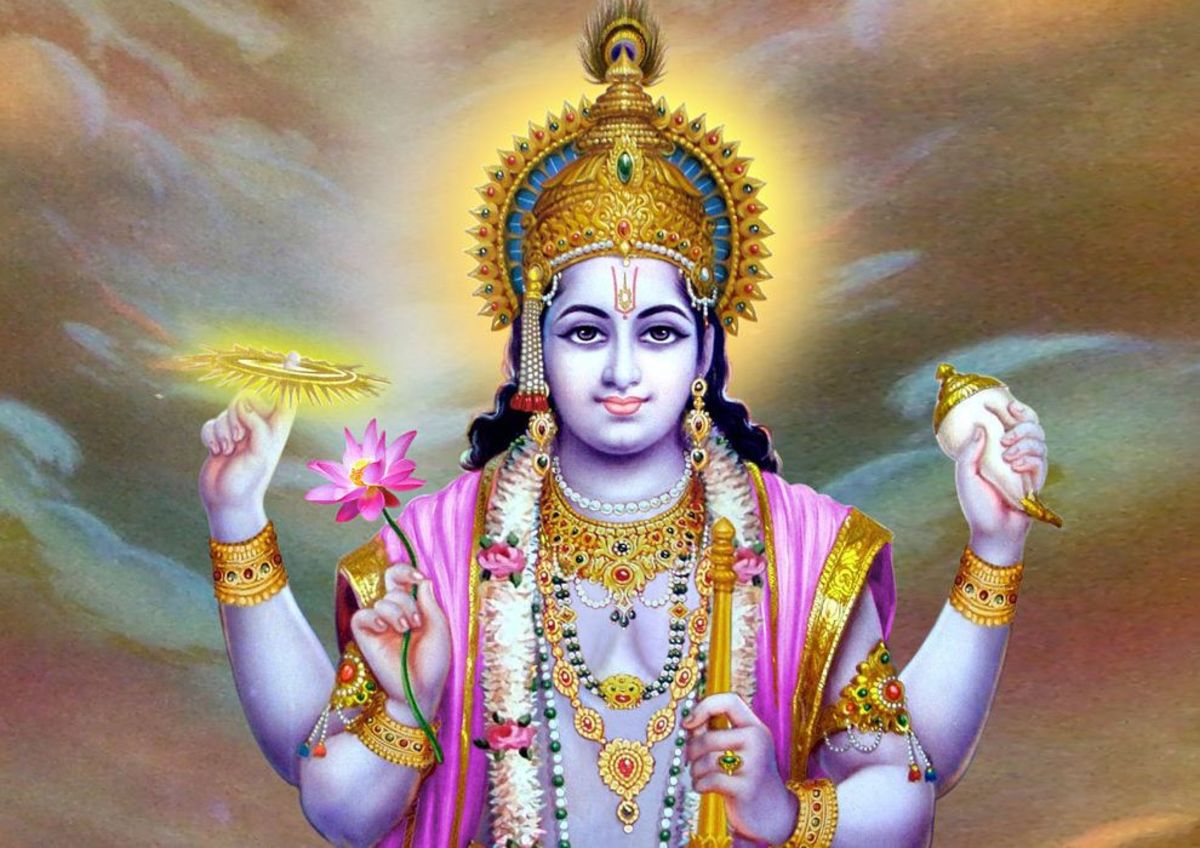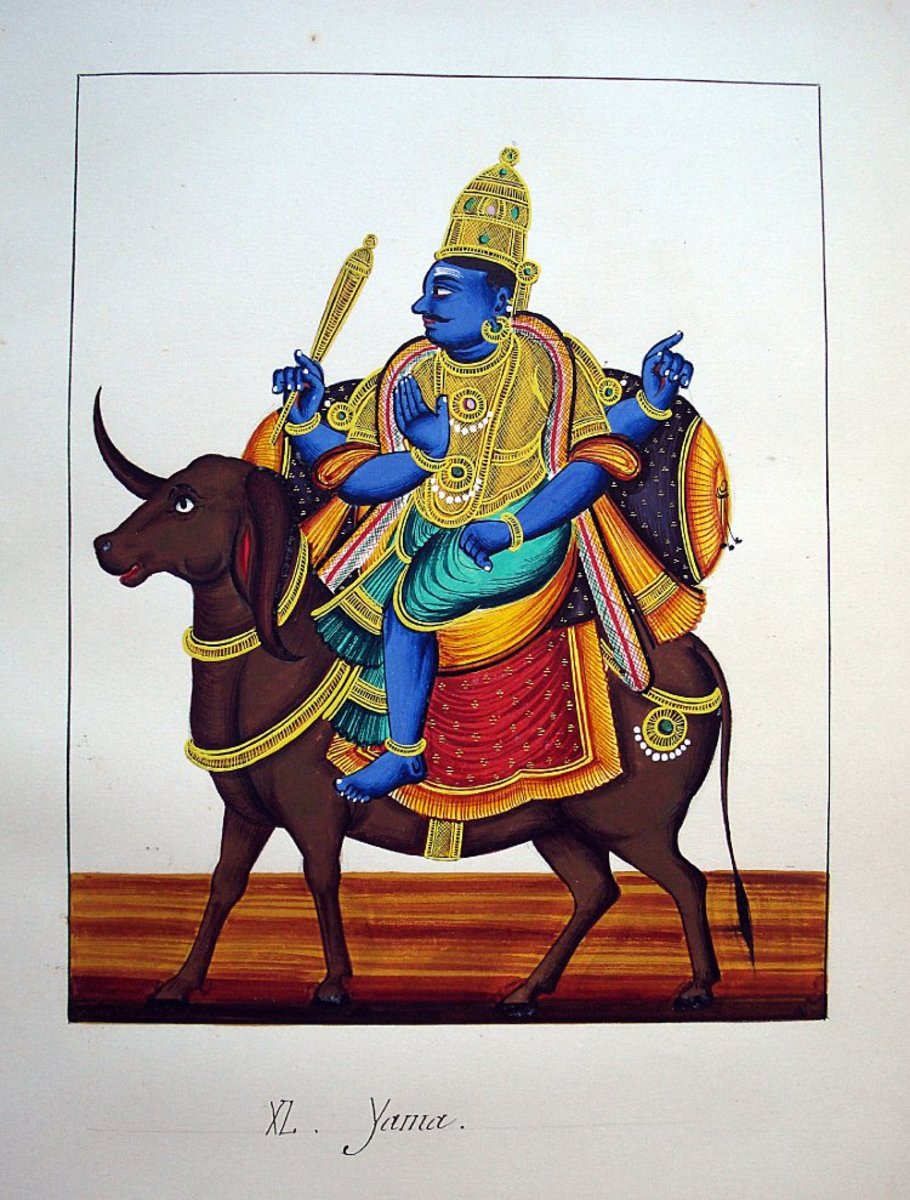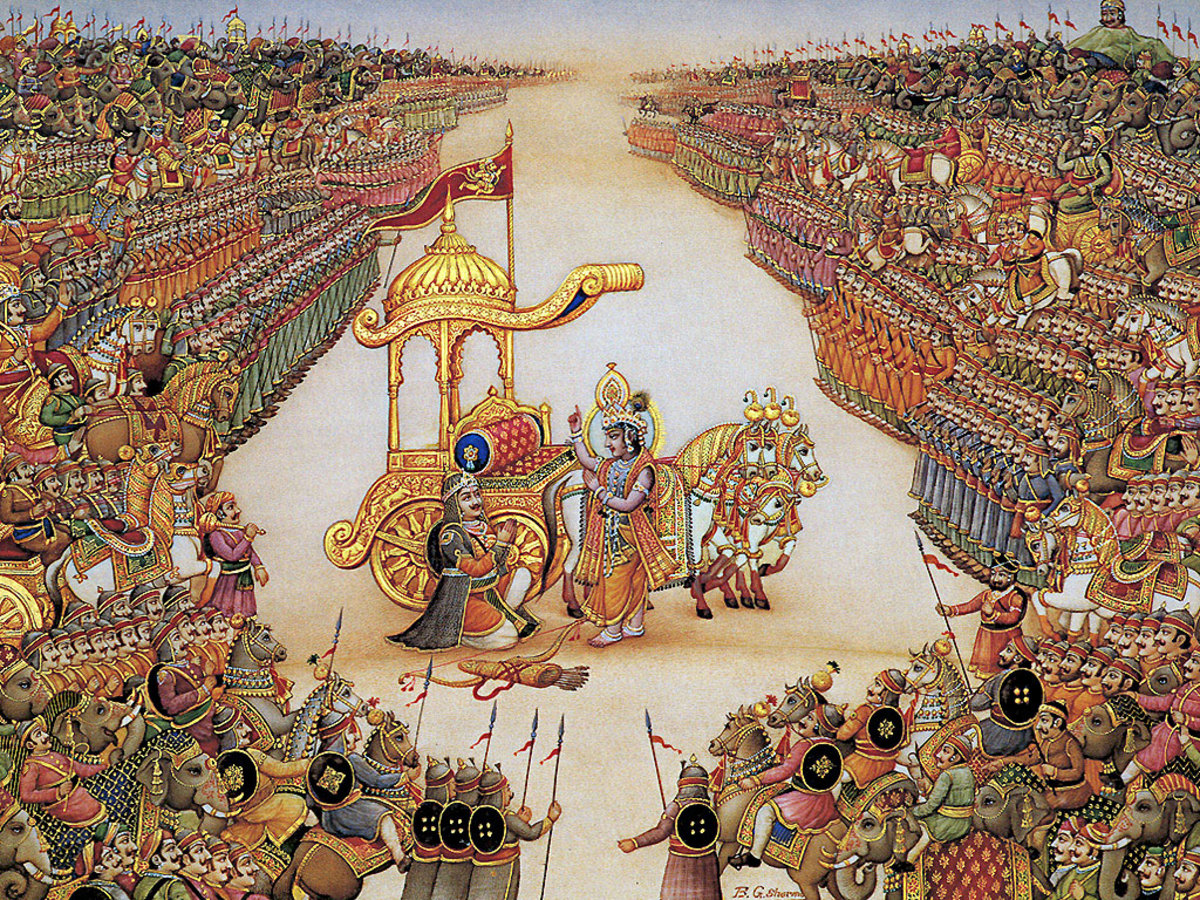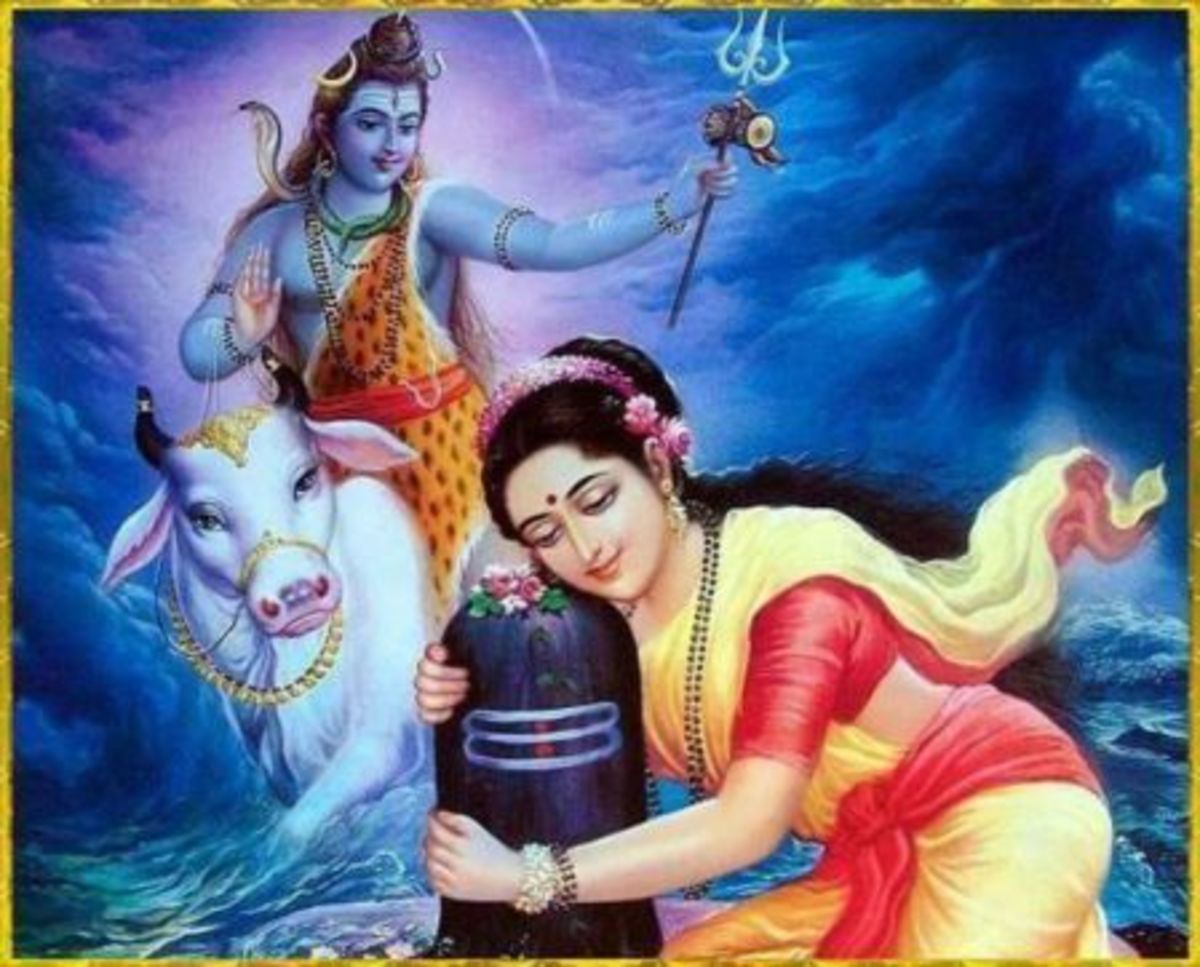Hindu Gods and Temple
Brahma Vishnu and Mahesh
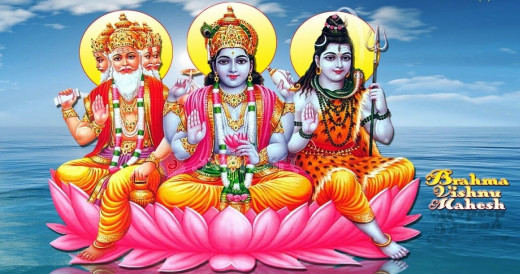
Hindu Gods
Almost 90% of the humankind believes in God and his powers. In fact we consider him as a part of our soul and have solid faith in his supremacy. We made him part of every moment of life that includes joys and sorrows of life. We speak to him, we get angry with him, we blame him sometimes and also we thank him for the success. This means that God is living a life of a human being along with us sharing all thoughts of life. This is true for every religion whether Hindu, Muslim, Sikh or Christian. Every religion has its own way of reaching the God and communicating but the ultimate goal of all is to reach him and building space in his heart.
So is the Hindu religion that believes in freedom of human kind and sharing love. If we talk about the Gods of Hindu religion, no one will be able to confirm the exact number of Gods which is countless. Hindu religion says that God is present in everything that is present within this universe. Hence it is divine which means God. According to Upanishads it is said that there are thirty three Gods which are divided as 12 adityas, 11 rudras, 8 vasus, Indra and Prajapat. This is misinterpreted as 33 million Gods by many due to the word Koti used in Upanishad which means crore as well as type. This is an endless discussion without any conclusion for the total number of Gods. Anything available to us by nature we presume it as God like rain God (Indra), Earth (Bhudevi), Air (Vayudev) and so on. This is basically to respect the natural sources available to mankind and not to waste them or disregard them. But if we go deep into the Hindu mythology it is known that there are three supreme deities of Human being which are described as Brahma (Creator), Vishnu (Preserver) and Mahadev (Distroyer). There are often referred as Trimurti. These three were also one initially and split into three to create the world and manage it. Brahma is the creator of the universe. Vishnu is the preserver or maintainer of the world and Mahesh is the destroyer. Brahma creates everything, Vishnu preserves the good things and Mahesh destroys the evil. In later stages they took birth in different names with some or the other purpose and each incarnation got renamed as another God. For example Vishnu came as lord Krishna and Lord Rama to teach the lessons of dharma to the mankind. In the same way Lord Mahesh came in the form of Hanuman to assist Lord Rama in the search of his wife Sita who was absconded by demon Ravan. There are number of stories of Gods reincarnated in different forms for various purposes. And we humans gave the name of different God to each incarnation creating a new God. Whereas in actual Hindu mythology says that Lord Krishna and lord Rama are none other than Lord Vishnu and Lord Hanuman is Shiva or Mahesh who themselves were one and got split for the creation of the universe. Different Hindu people worship different God. Like all Hindus belong to one religion, all Gods are also one and cannot be separated just because of a false belief. One person believing in Lord Krishna and other in Lord Rama but ultimately both believes in Lord Vishnu.
Almost every natural product gifted to us by god is worshiped in Hindu religion to respect the natural resources available to us. We worship plants like Tulsi and peepal, animals like cow and fish, mountains like govardhan, and Himalaya and water in rivers available to us. People who does not belong to Hindu community make fun of this that how such things can be worshiped and how will they fulfill our desires. A simple reply is that worship or puja is not done to fulfill the desires but to respect the resources available to us. We give respect to these plants, animals, water and mountain that they allowed us to live and sustain ourselves on this earth as human life is not possible without the presence of these resources. Even different gods in their different incarnations taught us to respect whatever is available to us naturally. We have been taught to respect humanity, plants and animals and also the natural resources available.
Home Temple
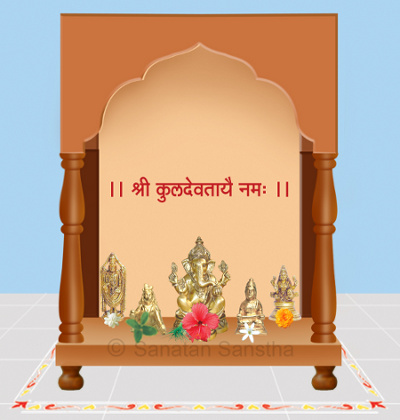
Home Temple
On entry to a Hindu Home, one can easily recognize their religion through the ambience and furnishing of the house. Entrance is embarked with the presence of Tulsi plant in a small pot or in earth as per the convenience. This is not mandatory to keep Tulsi in every Hindu house but is just a belief that most of the people follow. Tulsi is a herb as well that is used for curing multiple diseases like cold, cough, throat infection, fever and skin diseases. Therefore their medicinal property is also a reason for presence of Tulsi plant in most of the Hindu Homes. Next is the presence of the idol or photograph of Lord Ganesh (Son of Lord Mahadev) on entrance wall of the house facing the main entrance gate. Many people also believe that placing Lord Ganesha’s idol with his back to the house is inauspicious. Therefore they place another idol of the God on other side of the wall so when they enter or exit, they are within the sight of Lord Ganesha and are blessed with prosperity. Similarly people also place the photos and idols of different gods in the drawing rooms, kitchens and dining halls according to their customs and beliefs. But the pictures are mostly avoided in bedrooms and near the bathroom area.
Home Temple is an important part of every Hindu family and is placed very cautiously keeping in mind the facts of Vastu. Most of the Hindu families follow vastu rules for keeping the household thing specially the temple. Following Vastu creates Positive energy in the house and does not allow negativity to cover the ambience. When it comes to temple, positive energy is the foremost requirement; hence, following Vastu becomes essential. Home temple should be designed and placed properly not only because it is sacred but also it connects our emotions with the almighty i.e God.
Important points for Home Temple
- Home temple should be made of wood or white marble and it should be placed higher than the sitting place of the devotee. There should be some foundation below the temple as it is considered inauspicious to place the temple directly on the floor.
- Temple should be placed in North east corner of the house or properly in East direction facing west. North East corner is also called ishaan corner of the house. Temple should have a dome on its top.
- Shri Ganpati (Lord Ganesh) should be placed in the centre along the Mata Lakshmi on his left side. All other idols of male deities should be placed to right of Lord Ganesh and female deities to his right. Like Lord Shiva, Hanuman, and Krishna will be on his right and Vaishno Mata, lakshmi mata, Kali mata will be on his left.
- Temple should be purified with Gangajal before placing the idols in the temple and all idols should be bathed with pure water and wiped with clean cotton cloth. Temple should have the pure essence of chandan, rose or jasmine for which one can use dhoop or agarbatti. Dia (small lamp of ghee) should be lit daily early morning and evening after taking bath.
- People sing aartis and bhajans of different deities according to their beliefs to please their respective gods. One should remove the old flowers and other offerings kept earlier and should clean the temple on regular basis.
- Placing the picture of the late ancestors should be avoided as this is considered as disrespect of the deities.
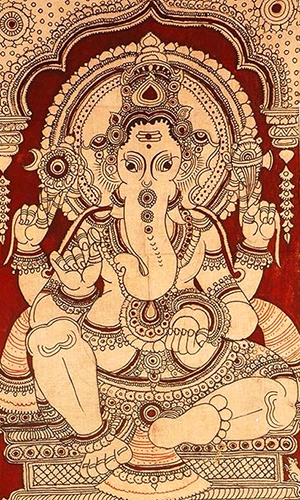
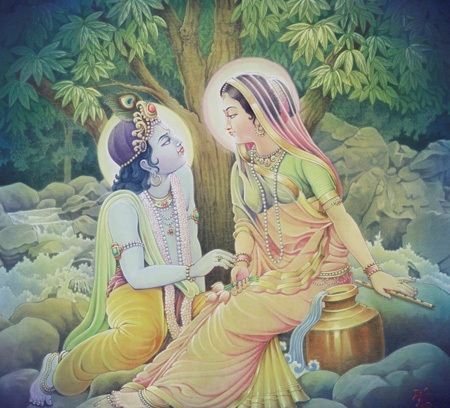
Most Popular Gods among Hindus
Lord Ganesh – Hindu Puja resumes with the name of Shri Ganesh as he is the God for peace and prosperity. Any new business is initiated with the name of lord Ganesha along with Mata Lakshmi. Lord Ganesh has a special liking for fresh grass and boondi ladoos, hence, people offer him the same on every Wednesday. People facing financial problems or people looking for new job or business usually worship them for his blessings.
Lord Shiva – Lord Shiva is the destroyer. Hence it can be very dangerous to displease him. But he is very soft hearted also and get pleased very easily. He is mostly worshiped by young girls to get married soon with a nice gentleman. People keep fast on every Monday and offer milk or curd to the shivling. This is important to note that Lord shiva is worshiped in the form of Shivling (Black round stone) but people does not keep Shivling within the house premises and is mostly kept in garden or temple outside home. Shiva, parvati and Ganesh (Shiv Partivar) idol is worshiped in temple instead of Shivling.
Lord Hanuman. Lord Hanuman is the God worshiped for getting rid of problems and negative energies. He is the strong devotee of Lord Rama and pictures are seen in temples wherein Hanuman is kneeling in front of Lord Rama. People facing any kind of trouble specially related to negative energies worship him on Tuesday and offer boondi (prasadam). He is also renowned as sankat mochan (destroyer of troubles). Hanuman chalisa is the most popular mantra to get rid of negative energies and evil souls.
Lord Krishna – Lord Krishna was the incarnation of Lord Vishnu who also took birth as Lord Rama. He is the most popular God among hindus as well as non Hindus. Lord Krishna is worshiped along with Radha rani in youth form. He is also worshiped as Laddu Gopal (Child form of Lord Krishna). Lord Vishnu took birth in different forms to teach the lesson of dharma to the mankind. He is also the idol of love for the youth. Love story of Lord Krishna and Radha Rani is very popular and till today they are worshipped together.
Mata Rani – Female deity or Mata Rani is worshipped in nine different forms, that is why, she is also called Navdurga. She is worshipped in almost each and every house of Hindu family. She is goddess of power and is treated as mother of hindu people. Just like we can ask anything from our mother, Mata rani also fulfills all desires and wishes of their devotee’s. Although she is worshiped daily, but Navratra’s are the nine days of fasting kept to please Mata Rani. These are the most sacred days for hindus and are also considered vey auspicious for start of new task.
These are few of the major Gods most popularly known and worshipped. Otherwise there are multiple lists that are in some or the other way connected to these Gods. Hindu religion is the oldest among all and is required to be deeply studied for its complete knowledge. As a person goes deep into it, all myths and mysteries of life keeps resolving. Many people of today’s generation make fun of the religion without even understanding the actual facts. Any scientific theory or action seems magic when it is performed without understanding. Same is the case with religion. People comment on any religion without even understanding the history and its facts. None of the religion is fake and so is not the Hindu religion. Every religion teaches us the lesson of truth, respect, Good action, and humanity. Therefore each religion deserves the true respect from the bottom of the heart without discrimination of caste and creed because the ultimate goal of all is one i.e. truth and the Almighty God.



